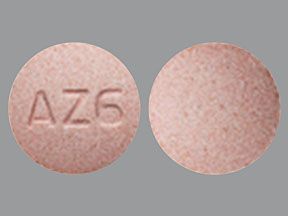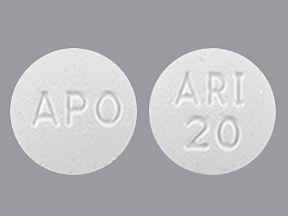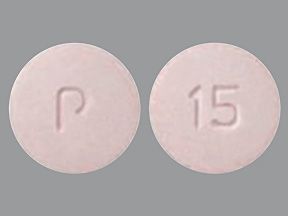Aripiprazole is a generic prescription medication that’s prescribed for certain mental health conditions.
Specifically, aripiprazole oral tablet is approved to treat:
- schizophrenia in adults and children ages 13 years and older
- manic and mixed episodes related to bipolar I disorder in adults and children ages 10 years and older
- major depressive disorder (MDD, which is also called depression) in adults*
- irritability related to autism spectrum disorder (ASD) in children ages 6 years and older
- Tourette’s syndrome in children ages 6 years and older
To learn more about aripiprazole’s uses, see “Aripiprazole oral tablet uses” below.
For this use, aripiprazole is used in combination with antidepressant medications.
Drug details
Aripiprazole belongs to a class of drugs a called atypical antipsychotics. A class of drugs is a group of medications that work in a similar way.
Aripiprazole comes as an oral tablet. Aripiprazole also comes as an oral solution and an orally disintegrating tablet, but this article doesn’t cover them. Your doctor can tell you more about these forms.
Aripiprazole oral tablet is available in the following strengths:
- 2 milligrams (mg)
- 5 mg
- 10 mg
- 15 mg
- 20 mg
- 30 mg
Brand-name versions
The brand name version of aripiprazole oral tablet is called Abilify.
Aripiprazole is a generic drug. A generic drug is an exact copy of the active drug in a brand-name medication. Abilify is the brand-name medication that aripiprazole is based on. A generic is considered to be as safe and effective as the original drug. Generics tend to cost less than brand-name drugs.
If you’re interested in using Abilify instead of aripiprazole, talk with your doctor. They can tell you if Abilify comes in forms and strengths that can be used for your condition. If you have insurance, you’ll also need to check whether your plan will cover Abilify.
To learn more about how generics compare with brand-name drugs, see this article.
Aripiprazole can cause mild or serious side effects (also known as adverse effects). The following lists contain some of the key side effects that may occur while taking aripiprazole. These lists do not include all possible side effects.
For more information about the possible side effects, including common side effects, of aripiprazole, talk with your doctor or pharmacist. They can give you tips on how to manage any side effects that may be concerning or bothersome.
Note: The Food and Drug Administration (FDA) tracks side effects of drugs it’s approved. If you’d like to notify the FDA about a side effect you’ve had with aripiprazole, you can do so through MedWatch.
Mild side effects
Below is a partial list of mild side effects of aripiprazole. To learn about other mild side effects, talk with your doctor or pharmacist, or view the drug’s prescribing information.
Mild side effects of aripiprazole can include:
- nausea and vomiting
- akathisia (feeling restless and like you need to move)
- anxiety
- headache
- insomnia
- fatigue
- blurry vision
- increased saliva production
- dizziness
- constipation
- tremor
- mild allergic reaction*
Most of these side effects may go away within a few days to a couple of weeks. However, if they become more severe or don’t go away, talk with your doctor or pharmacist.
* For more information about allergic reaction and aripiprazole, see “Allergic reaction” below.
Serious side effects
Serious side effects from aripiprazole aren’t common, but they can occur. Call your doctor right away if you have serious side effects. Call 911 or your local emergency number if your symptoms feel life threatening or if you think you’re having a medical emergency.
Serious side effects can include:
- sleepiness, trouble thinking clearly, impaired judgement, and slowed reaction times that could affect your ability to drive safely
- orthostatic hypotension (drop in blood pressure when getting up that can cause dizziness or fainting)
- extrapyramidal symptoms, including tardive dyskinesia (involuntary, uncontrollable movements)
- increased risk of falls
- neuroleptic malignant syndrome (a rare reaction to antipsychotic drugs)
- metabolic changes, such as increased blood sugar, diabetes, high cholesterol, and weight gain
- compulsive behaviors (intense, uncontrollable urges to do certain activities, such as gambling, eating, shopping, or sexual activities)
- seizures
- low white blood cell count
- problems with the body’s ability to control body temperature
- trouble swallowing
- increased risk of suicidal thoughts and behaviors in certain younger people*
- increased risk of death in certain older adults*
- severe allergic reaction†
* Aripiprazole has a
† For details about allergic reaction and aripiprazole, see “Allergic reaction” below.
Side effects in children
Aripiprazole can cause similar side effects in children and adults. Examples of these are listed above.
In clinical trials, certain side effects were more common in children who took aripiprazole than in adults who took the drug. These side effects include:
- sleepiness
- fatigue
- extrapyramidal symptoms (involuntary, uncontrollable movements)
- increased appetite
- weight gain
As well, aripiprazole has a boxed warning for an increased risk of suicidal thoughts and behaviors in some children. A boxed warning is a serious warning from the Food and Drug Administration (FDA). To learn more about this warning, see “Aripiprazole oral tablet precautions” below.
If you’re concerned about the risk of aripiprazole side effects in your child, talk with the child’s doctor.
Suicide prevention
If you know someone at immediate risk of self-harm, suicide, or hurting another person:
- Ask the tough question: “Are you considering suicide?”
- Listen to the person without judgment.
- Call 911 or the local emergency number, or text TALK to 741741 to communicate with a trained crisis counselor.
- Stay with the person until professional help arrives.
- Try to remove any weapons, medications, or other potentially harmful objects.
If you or someone you know is having thoughts of suicide, a prevention hotline can help. The 988 Suicide and Crisis Lifeline is available 24 hours a day at 988. During a crisis, people who are hard of hearing can use their preferred relay service or dial 711 then 988.
Allergic reaction
As with most drugs, some people can have an allergic reaction after taking aripiprazole. This was a rare side effect in clinical trials of this drug.
Symptoms of a mild allergic reaction can include:
A more severe allergic reaction is rare but possible. Symptoms of a severe allergic reaction can include:
- swelling under your skin, typically in your eyelids, lips, hands, or feet
- swelling of your tongue, mouth, or throat
- trouble breathing
Call your doctor right away if you have an allergic reaction to aripiprazole, as the reaction could become severe. Call 911 or your local emergency number if your symptoms feel life threatening or if you think you’re having a medical emergency.
The aripiprazole dosage your doctor prescribes will depend on several factors. These include:
- the type and severity of the condition you’re using aripiprazole to treat
- your age
- other medical conditions you may have
- other medications you may take
Aripiprazole strengths: 2 mg, 5 mg, 10 mg, 15 mg, 20 mg, 30 mg
Aripiprazole oral tablet is available in the following strengths:
- 2 milligrams (mg)
- 5 mg
- 10 mg
- 15 mg
- 20 mg
- 30 mg
Dosage details
Typically, your doctor will start you on a low dosage. Then they’ll adjust it over time to reach the amount that’s right for you. This is called the maintenance dose. Your doctor will ultimately prescribe the smallest dosage that provides the desired effect.
The following information describes dosages that are commonly used or recommended. However, be sure to take the dosage your doctor prescribes for you. Your doctor will determine the best dosage to fit your needs.
Dosage for schizophrenia
Here’s aripiprazole dosage information for schizophrenia in adults.
| Aripiprazole for schizophrenia | |
| Form | oral tablet |
| Starting dose | 10 mg to 15 mg |
| Maintenance dose | 10 mg to 15 mg |
| How often | once a day |
| Administered by | self |
Dosage for manic and mixed episodes related to bipolar I disorder
Here’s aripiprazole dosage information for manic and mixed episodes related to bipolar I disorder in adults.
| Aripiprazole for manic and mixed episodes related to bipolar I disorder | |
| Form | oral tablet |
| Starting dose | 10 mg to 15 mg |
| Maintenance dose | 15 mg |
| Maximum dose | 30 mg |
| How often | once a day |
| Administered by | self |
Dosage for depression
Here’s aripiprazole dosage information for depression in adults.
| Aripiprazole for depression | |
| Form | oral tablet |
| Starting dose | 2 mg to 5 mg |
| Maintenance dose | 2 mg to 15 mg |
| How often | once a day |
| Administered by | self |
Children’s dosage
In children, aripiprazole is used to treat:
- schizophrenia in children ages 13 years and older
- manic and mixed episodes related to bipolar I disorder in children ages 10 years and older
- irritability related to autism spectrum disorder (ASD) in children ages 6 years and older
- Tourette’s syndrome in children ages 6 years and older
Dosage for schizophrenia in children
Here’s aripiprazole dosage information for schizophrenia.
| Aripiprazole for schizophrenia | |
| Form | oral tablet |
| Starting dose | 2 mg |
| Maintenance dose | 10 mg |
| How often | once a day |
| Administered by | self |
Dosage for manic and mixed episodes related to bipolar I disorder in children
Here’s aripiprazole dosage information for manic and mixed episodes related to bipolar I disorder.
| Aripiprazole for manic and mixed episodes related to bipolar I disorder | |
| Form | oral tablet |
| Starting dose | 2 mg |
| Maintenance dose | 10 mg |
| How often | once a day |
| Administered by | self |
Dosage for irritability related to autism in children
Here’s aripiprazole dosage information for irritability related to autism.
| Aripiprazole for irritability related to autism | |
| Form | oral tablet |
| Starting dose | 2 mg |
| Maintenance dose | 5 mg to 15 mg |
| How often | once a day |
| Administered by | self |
Dosage for Tourette’s syndrome in children
Here’s aripiprazole dosage information for Tourette’s syndrome.
| Aripiprazole for Tourette’s syndrome | |
| Form | oral tablet |
| Starting dose | 2 mg |
| Maintenance dose | 5 mg to 20 mg |
| How often | once a day |
| Administered by | self |
What if I miss a dose?
If you miss a dose, take it as soon as you remember, unless it’s nearly time for your next scheduled dose. In this case, skip the missed dose and take your next scheduled dose as usual. Don’t take two doses together to make up for a missed dose.
To help make sure that you don’t miss a dose, try using a medication reminder. This can include setting an alarm or using a timer. You could also download a reminder app on your phone.
Will I need to use this drug long term?
Aripiprazole is meant to be used as a long-term treatment. If you and your doctor determine that aripiprazole is safe and effective for you, you’ll likely take it long term.
The Food and Drug Administration (FDA) approves prescription drugs such as aripiprazole to treat certain conditions. Aripiprazole may also be used off-label for other conditions. Off-label drug use is when an FDA-approved drug is prescribed for a purpose other than what it’s approved for.
Aripiprazole for depression
Aripiprazole is FDA-approved to treat major depressive disorder (MDD) in adults. MDD is often simply called depression.
Aripiprazole is approved for use with antidepressant medications.
Depression explained
Depression is a mental health condition that causes a persistently low mood, along with several other mental and physical symptoms.
Symptoms of depression can include:
- feelings of sadness, gloom, and hopelessness that don’t go away
- loss of interest in things you used to enjoy
- fatigue
- trouble concentrating
- irritability
- anxiety
- eating more or less than usual
- sleep problems, such as trouble falling asleep, or waking earlier than usual
- suicidal thoughts
Your doctor may prescribe aripiprazole if antidepressants haven’t worked to treat your depression. You’ll take it alongside your antidepressants.
To learn more about depression, you can visit our depression hub.
Aripiprazole for manic and mixed episodes related to bipolar I disorder
Aripiprazole is FDA-approved to treat manic and mixed episodes related to bipolar I disorder. It’s approved for this use in adults and children ages 10 years and older.
Bipolar I disorder explained
Bipolar disorder is a mental health condition that causes episodes of depression (low mood) and episodes of mania (high mood). Some people with bipolar disorder also have mixed episodes, which involve having symptoms of mania and depression at the same time.
Symptoms of manic episodes may include:
- feeling excessively excited or happy
- feeling highly self-confident
- feeling restless, wired, or jittery
- sleeping less than usual
- having racing thoughts
- talking excessively
- acting impulsively and having poor judgement
Symptoms of mixed episodes may include manic symptoms such as those above, together with symptoms of depression such as:
- feelings of sadness, gloom, and hopelessness that don’t go away
- loss of interest in things you used to enjoy
- fatigue
- trouble concentrating
- irritability
- anxiety
- eating more or less than usual
- sleep problems, such as trouble falling asleep, or waking earlier than usual
- suicidal thoughts
People with a severe manic or mixed episode may also have symptoms of psychosis. These may include:
- loss of touch with reality
- hallucinations (seeing or hearing things that aren’t real)
- delusions (believing things that aren’t true)
Your doctor may prescribe aripiprazole on its own to treat manic or mixed episodes. Or they may prescribe it with lithium or valproate. These are medications for bipolar disorder that help stabilize your mood.
To learn more about bipolar disorder, you can visit our bipolar disorder hub.
Aripiprazole for irritability related to autism
Aripiprazole is FDA-approved to treat irritability related to autism spectrum disorder (ASD) in children ages 6 years and older. ASD is often simply called autism.
Autism explained
Autism is a developmental condition that affects how you communicate, learn, behave, and interact with the world. With autism, your brain works in a different way than usual. This is often described as being neurodiverse, rather than neurotypical.
Symptoms of autism can vary across a spectrum. Some children may have few symptoms and function well in daily life. Others may have many symptoms that affect their daily functioning and quality of life.
Doctors prescribe aripiprazole to treat symptoms of irritability that some children with autism may have. These may include:
- excessive tantrums
- self-harming behavior, such as hand-biting or head-banging
- aggressive behavior
Aripiprazole can help reduce these behaviors. This can help the child function better.
To learn more about autism, you can visit our autism hub.
Aripiprazole for schizophrenia
Aripiprazole is FDA-approved to treat schizophrenia in adults and children ages 13 years and older.
Schizophrenia explained
Schizophrenia is a mental health condition that affects how you think and behave.
Symptoms of schizophrenia can include:
- Positive symptoms (also called psychotic symptoms), such as:
- hallucinations (seeing or hearing things that aren’t real)
- delusions (believing things that aren’t true)
- paranoia (irrational suspicion and mistrust of other people)
- Negative symptoms, such as:
- fatigue
- loss of interest in things you used to enjoy
- memory problems
- trouble concentrating
- trouble expressing emotions
- talking less than usual and having trouble communicating
Aripiprazole helps reduce positive symptoms and improve negative symptoms of schizophrenia.
Aripiprazole for Tourette’s syndrome
Aripiprazole is FDA-approved to treat Tourette’s syndrome in children ages 6 years and older.
Tourette’s syndrome explained
Tourette’s syndrome is a neurological condition (affecting the brain and nerves). It causes tics, which are uncontrollable, repetitive movements or sounds. These get worse during times of stress or excitement.
For some children with Tourette’s, the tics don’t interfere with their daily life. But tics can sometimes cause pain or injury. And, in some cases, they can interfere with school, work, or social life, or cause the child stress.
Examples of tics that can occur with Tourette’s syndrome include:
- physical tics, such as:
- eye blinking
- squinting
- coughing
- sniffing
- arm jerking
- shoulder shrugging
- vocal tics, such as:
- humming
- grunting
- clearing the throat
- shouting a word or phrase
Aripiprazole helps reduce tics, which can help the child function better.
Aripiprazole and children
In children, aripiprazole is FDA-approved to treat:
- schizophrenia in children ages 13 years and older
- manic and mixed episodes related to bipolar I disorder in children ages 10 years and older
- irritability related to autism spectrum disorder (ASD) in children ages 6 years and older
- Tourette’s syndrome in children ages 6 years and older
To learn more about these uses, see the sections just above.
Here are answers to some frequently asked questions about aripiprazole.
How does aripiprazole compare with other similar drugs, such as olanzapine or risperidone?
Aripiprazole is a type of drug called an atypical antipsychotic. It’s similar to other atypical antipsychotics, such as olanzapine (Zyprexa), risperidone (Risperdal), and quetiapine (Seroquel).
These drugs are approved for slightly different uses. They’re all used to treat schizophrenia. And they’re all used for manic or mixed episodes related to bipolar disorder. Quetiapine is also approved for depressive episodes related to bipolar disorder.
Aripiprazole and olanzapine are also used to treat depression. And both aripiprazole and risperidone are used for irritability related to autism. However, only aripiprazole is used for Tourette’s syndrome.
All these drugs can cause similar side effects. However, they may vary in how likely they are to cause certain side effects. For example, aripiprazole is less likely to cause diabetes, weight gain, and blood pressure changes than other antipsychotics.
To learn more about how aripiprazole compares with other drugs that may be used for your condition, talk with your doctor. They can recommend the most suitable treatment for you.
Can aripiprazole be used for anxiety or OCD?
The Food and Drug Administration (FDA) hasn’t approved aripiprazole for anxiety or obsessive-compulsive disorder (OCD). However, doctors may sometimes prescribe it off-label for these uses. Off-label use refers to using a drug for a use other than that approved by the FDA.
Anxiety disorders such as generalized anxiety disorder (GAD) and OCD are often treated with antidepressant medications, such as paroxetine (Paxil). However, antidepressants don’t always work for anxiety disorders. Some research suggests that aripiprazole may be effective for GAD and OCD that hasn’t improved with antidepressants.
If you’re interested in taking aripiprazole for GAD or OCD, talk with your doctor. They can recommend whether this is a suitable option for you.
What is aripiprazole’s half-life? How does the drug work?
It’s not fully understood how aripiprazole works to treat mental health conditions. However, it acts on receptors (attachment sites) for dopamine and serotonin in your brain.
Dopamine and serotonin are brain chemicals called neurotransmitters. They send messages in nerve pathways in your brain that help regulate your thoughts, mood, emotions, and behavior. The mental health conditions that aripiprazole treats are thought to result from changes in these nerve pathways.
Aripiprazole is thought to work by balancing the activity of dopamine and serotonin in these nerve pathways. This may improve the function of these nerve pathways, which can help reduce the symptoms of the mental health condition.
Aripiprazole starts working within a few hours, but it may take about 2 weeks for it to reach steady level in your body, which is when it works best.
Aripiprazole has a half-life of about 75 to 94 hours. A drug’s half-life is the time it takes for half a dose of the drug to be cleared from your body.
If I stop taking aripiprazole, will I experience withdrawal symptoms?
It’s possible, but not likely. Withdrawal symptoms are symptoms you may have if you suddenly stop taking a drug that your body depends on to function normally.
There haven’t been studies into whether aripiprazole can cause dependence and withdrawal symptoms. The manufacturer doesn’t warn about these problems when stopping aripiprazole. However, there have been a few
Note that suddenly stopping treatment with aripiprazole could cause symptoms of your mental health condition to come back. Some of these symptoms may seem like withdrawal symptoms.
If you want to stop taking aripiprazole, you should first talk with your doctor. If you and your doctor agree that you should stop taking aripiprazole, your doctor will likely recommend that you do so gradually. This allows your body to readjust to not taking the medication.
Can I take aripiprazole with sertraline?
Yes, you can usually take aripiprazole with sertraline (Zoloft).
Sertraline is a type of antidepressant drug called a selective serotonin reuptake inhibitor (SSRI). Aripiprazole can interact with some SSRIs, such as fluoxetine (Prozac) and paroxetine (Paxil). However, it’s not known to interact with aripiprazole.
Your doctor may prescribe aripiprazole with sertraline to treat depression.
Is aripiprazole a narcotic and is it addictive?
No, aripiprazole is not a narcotic. Instead, it’s an antipsychotic drug.
Narcotics are opioid drugs (sometimes called opiates). Examples include strong prescription pain relievers, such as morphine (MS Contin) and oxycodone (Oxycontin, Xtampza ER, Oxaydo, others). The illegal drug heroin is also a narcotic.
Narcotics have a risk for misuse (being taken in a way that’s not prescribed) and can be addictive. With addiction, you have trouble stopping use of a drug, even if it’s causing harm.
Aripiprazole doesn’t have a high risk for misuse, and it’s not known to be addictive. However, if you’ve misused or been addicted to drugs in the past, you should talk with your doctor before starting aripiprazole.
Aripiprazole can interact with several other medications. It can also interact with certain supplements as well as certain foods.
Different interactions can cause different effects. For instance, some interactions can interfere with how well a drug works. Other interactions can increase side effects or make them more severe. Drug-condition interactions can also cause certain effects. For information about these interactions, see the “Aripiprazole oral tablet precautions” section below.
Aripiprazole and other medications
Before taking aripiprazole, talk with your doctor and pharmacist. Tell them about all prescription, over-the-counter, and other drugs you take. Also, tell them about any vitamins, herbs, and supplements you use. Sharing this information can help you avoid potential interactions.
Below is a table of medications that can interact with aripiprazole. This table does not contain all drugs that may interact with aripiprazole.
| Medication type or medication name | Medication examples |
| certain HIV drugs | • atazanavir (Reyataz, Evotaz) • fosamprenavir (Lexiva) • ritonavir (Norvir) |
| certain antibiotics | • clarithromycin • rifampin (Rifadin, Rimactane) |
| certain antifungals | • itraconazole (Sporanox, Tolsura) • ketoconazole • terbinafine |
| certain seizure medications | • carbamazepine (Tegretol, Carbatrol, others) • phenytoin (Dilantin) |
| certain antidepressants | • bupropion (Aplenzin, Wellbutrin SR, Wellbutrin XL) • fluoxetine (Prozac) • paroxetine (Paxil) |
| certain blood pressure medications | • doxazosin (Cardura) • prazosin (Minipress) |
| benzodiazepines | • alprazolam (Xanax) • diazepam (Valium) • lorazepam (Ativan) |
| quinidine |
Your doctor or pharmacist can provide you with more information about the interactions between these medications and aripiprazole. If you have questions about any drug interactions that may affect you, your doctor or pharmacist can also address those.
Other interactions
Other types of interactions, such as those with herbs, supplements, foods, lab tests, and vaccines, may also occur with the use of aripiprazole. The following table lists some of these interactions.
| Cause of interaction | Examples |
| herbs and supplements | • St. John’s wort |
| foods | • grapefruit and grapefruit juice |
Your doctor can provide you with details about these interactions with aripiprazole.
Alcohol doesn’t interact with aripiprazole. However, alcohol and aripiprazole can cause some of the same side effects. So, if you have these side effects with aripiprazole, drinking alcohol could make them worse.
Examples of aripiprazole side effects that could be increased by alcohol include:
- sleepiness
- nausea
- dizziness
- headache
- blurry vision
- sleepiness, trouble thinking clearly, impaired judgement, and slowed reaction times that could affect your ability to drive safely
- increased risk of falls
If you drink alcohol, talk with your doctor about how much (if any) is safe to consume while you’re taking aripiprazole.
Using more than the recommended dosage of aripiprazole can lead to serious side effects. Do not use more aripiprazole than your doctor recommends. (For information on the recommended dosages of aripiprazole, see the “Aripiprazole oral tablet dosage” section above.)
Overdose symptoms
Symptoms of an overdose can include:
- vomiting
- sleepiness
- tremor
- aggression
- confusion
- reduced consciousness
- slow, fast, or irregular heartbeat
- convulsions
- breathing that slows down or stops altogether
- coma
What to do in case of overdose
If you think you’ve taken too much of this drug, call your doctor. You can also call the American Association of Poison Control Centers at 800-222-1222 or use its online tool. However, if your symptoms are severe, call 911 or your local emergency number, or go to the nearest emergency room right away.
Here’s some information about the safety of aripiprazole during pregnancy and breastfeeding.
Aripiprazole and pregnancy
It’s not known if aripiprazole is safe to take during pregnancy. The medication hasn’t been specifically studied in people who are pregnant.
Research hasn’t found any increased risk of congenital anomalies (commonly known as birth defects) or pregnancy loss associated with taking aripiprazole during pregnancy. However, taking the medication during the last 3 months of pregnancy could cause certain side effects in the newborn baby. These include:
- withdrawal symptoms, such as tremor, agitation, or trouble breathing
- extrapyramidal symptoms, such as tremor or twitching
Note that aripiprazole is used to treat certain mental health conditions. If your mental health condition isn’t treated during pregnancy, this can also have serious risks for you and your baby.
If you’re pregnant or planning to become pregnant, talk with your doctor about the risks and benefits of taking aripiprazole.
Pregnancy registry
If you take aripiprazole during pregnancy, you’re encouraged to join the National Pregnancy Registry for Atypical Antipsychotics. This registry collects health information about people who take atypical antipsychotics such as aripiprazole during pregnancy and the health of their babies. This can help doctors determine if these medications are safe to use during pregnancy. Your doctor can tell you more about this.
Aripiprazole and breastfeeding
It’s not known if it’s safe to breastfeed while taking aripiprazole. Aripiprazole may pass into breast milk in small amounts. There have been some reports of decreased milk supply in people taking aripiprazole. There have also been reports of poor weight gain in children exposed to aripiprazole in breast milk.
If you’re breastfeeding or plan to breastfeed, talk with your doctor about the risks and benefits of breastfeeding while taking aripiprazole.
Aripiprazole and birth control
It’s not known if aripiprazole is safe to take during pregnancy. If you’re sexually active and you or your partner can become pregnant, talk with your doctor about your birth control needs while you’re using aripiprazole.
For more information about taking aripiprazole during pregnancy, see the “Aripiprazole and pregnancy” section above.
As with all medications, the cost of aripiprazole can vary. The actual price you’ll pay depends on your insurance plan, your location, and the pharmacy you use.
Keep in mind that you may be able to get a 90-day supply of aripiprazole. If approved by your insurance company, getting a 90-day supply of the drug could reduce your number of trips to the pharmacy and help lower the cost. If you’re interested in this option, check with your doctor, pharmacist, or insurance company.
Before approving coverage for aripiprazole, your insurance company may require you to get prior authorization. This means that your doctor and insurance company will need to communicate about your prescription before the insurance company will cover the drug. The insurance company will review the prior authorization request and decide whether the drug will be covered.
If you’re not sure whether you’ll need prior authorization for aripiprazole, contact your insurance company.
Financial and insurance assistance
Financial assistance to help you pay for aripiprazole may be available.
Medicine Assistance Tool and NeedyMeds are two websites offering resources that may help decrease the price you pay for aripiprazole. They also offer tools to help you find low cost healthcare, as well as educational resources. To learn more, visit their sites.
Mail-order pharmacies
Aripiprazole may be available through a mail-order pharmacy. Using this service may help lower the drug’s cost and allow you to get your medication without leaving home.
If recommended by your doctor, you may be able to receive a 90-day supply of aripiprazole, so there’s less concern about running out of the medication. If you’re interested in this option, check with your doctor, pharmacist, or insurance company. Some Medicare plans may help cover the cost of mail-order medications.
If you don’t have insurance, you can ask your doctor or pharmacist about online pharmacy options.
You should take aripiprazole according to the instructions your doctor gives you.
Aripiprazole oral tablet should be swallowed whole. This may be easier if you take it with a drink of water.
When to take
Aripiprazole should be taken once a day. You can take it any time of day, but it should be a consistent time each day. Taking the medication around the same time of day helps keep a steady level of the drug in your body. This helps aripiprazole work effectively.
If aripiprazole makes you sleepy, you may find it helpful to take your dose at bedtime. However, if it causes trouble sleeping, you may find it better to take your dose in the morning.
To help make sure that you don’t miss a dose, try using a medication reminder. This can include setting an alarm or using a timer. You could also download a reminder app on your phone.
Accessible labels and containers
If your prescription label is hard to read, talk with your doctor or pharmacist. Some pharmacies offer labels that have large print, braille, or a code you scan with a smartphone to convert text to speech. If your local pharmacy doesn’t have these options, your doctor or pharmacist may be able to direct you to one that does.
If you have trouble opening medication bottles, ask your pharmacist if they can put aripiprazole in an easy-open container. They also may be able to recommend tools that can make it simpler to open lids.
Taking aripiprazole with food
You can take aripiprazole with or without food.
Avoid taking aripiprazole with grapefruit or grapefruit juice. Grapefruit can stop aripiprazole being broken down in your body, which can raise your risk for serious side effects.
Can aripiprazole be crushed, split, or chewed?
No, aripiprazole oral tablet should not be crushed, split, or chewed. The tablets should be swallowed whole.
This drug comes with several precautions. These are considered drug-condition interactions.
FDA warnings
This drug has
Increased risk of suicidal thoughts and behaviors in certain younger people.
Aripiprazole may increase the risk of suicidal thoughts and behaviors in some children and adults ages 24 years and younger. The risk may be higher in the first few months after starting treatment and after dose changes.
While taking aripiprazole, you should watch for changes in your mood, emotions, thoughts, and behavior. If your child takes aripiprazole, you should watch for these changes in your child. Call your doctor right away if you or a child taking aripiprazole have new or worsening:
- depression or anxiety
- panic attacks
- irritability or aggressiveness
- agitation, restlessness, or the inability to be still
- trouble sleeping
- extreme levels of excitement and activity, or talking very fast
- impulsive or dangerous behavior
- thoughts about suicide
- any other changes in mood, feelings, thoughts, or behaviors
Increased risk of death in certain older adults.
Aripiprazole may increase the risk of death in older adults with psychosis (loss of touch with reality) that’s related to dementia. Aripiprazole is not approved for use in this group of people. Doctors typically will not prescribe aripiprazole to treat psychosis that’s related to dementia in older adults.
Other precautions
In addition to the boxed warnings mentioned above, aripiprazole has other warnings.
If any of the following medical conditions or other health factors pertain to you, be sure to talk with your doctor before taking aripiprazole.
- if you’re pregnant or thinking about becoming pregnant
- if you’re breastfeeding or thinking about breastfeeding
- if you’ve had an allergic reaction to either drug or any of its ingredients
- if you have a history of seizures or convulsions
- if you have a history of heart problems or stroke
- if you have diabetes or high blood sugar
- if you have high or low blood pressure
- if you have a low white blood cell count
- if you have problems with an enzyme (type of protein) in your liver called CYP2D6
Note: For more information about the potential negative effects of aripiprazole, see the “Aripiprazole oral tablet side effects” section above.
When you get aripiprazole from the pharmacy, the pharmacist will add an expiration date to the label on the packaging. This date is typically 1 year from the date they dispensed the medication.
The expiration date helps guarantee that the medication is effective during this time. The
Storage
How long a medication remains good can depend on many factors, including how and where you store it.
Aripiprazole oral tablet should be stored at room temperature in a tightly sealed container. Avoid storing this medication in areas where it could get damp or wet, such as bathrooms.
Disposal
If you no longer need to take aripiprazole and have leftover medication, it’s important to dispose of it safely. This helps prevent others, including children and pets, from taking the drug by accident. It also helps keep the drug from harming the environment.
This article provides several useful tips on medication disposal. You can also ask your pharmacist for information about how to dispose of your medication.
Disclaimer: Medical News Today has made every effort to make certain that all information is factually correct, comprehensive, and up to date. However, this article should not be used as a substitute for the knowledge and expertise of a licensed healthcare professional. You should always consult your doctor or another healthcare professional before taking any medication. The drug information contained herein is subject to change and is not intended to cover all possible uses, directions, precautions, warnings, drug interactions, allergic reactions, or adverse effects. The absence of warnings or other information for a given drug does not indicate that the drug or drug combination is safe, effective, or appropriate for all patients or all specific uses.



























